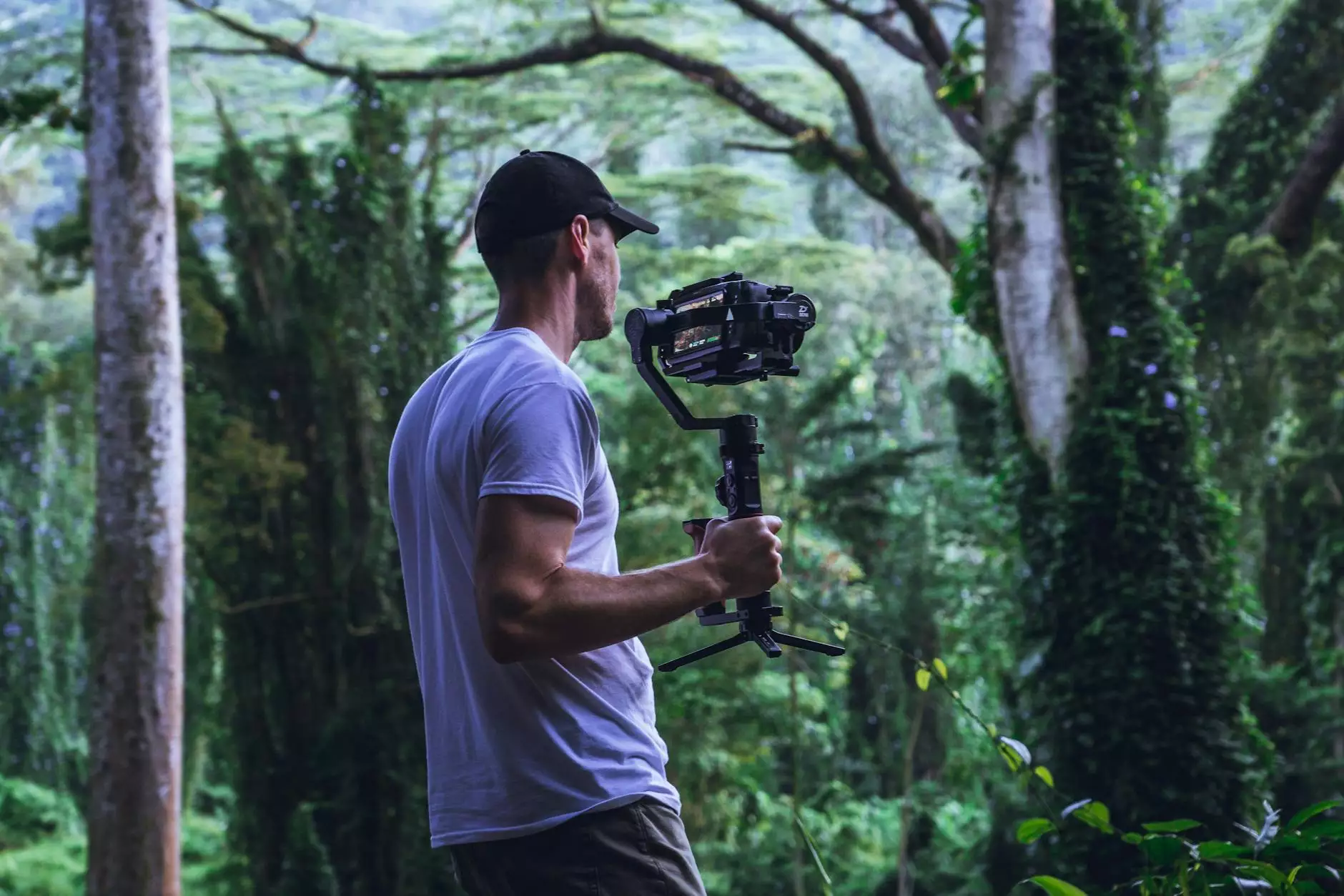The Art and Business of Video Film Production

Video film production is an ever-evolving industry that captivates audiences and businesses alike. With the rise of digital platforms and the increasing demand for visually engaging content, video production has transcended mere entertainment; it has become an integral part of brand storytelling and marketing strategies. In this comprehensive article, we delve into the multifaceted nature of video film production, exploring its significance, processes, and the numerous avenues for growth within this exciting field.
Understanding Video Film Production
Video film production encompasses the entire process of creating video content, from initial concept and scripting to shooting, editing, and distribution. This process can be broken down into several key stages:
- Pre-Production: This phase involves planning and preparing for the shoot. It includes everything from scriptwriting and storyboarding to location scouting and casting. Every detail is meticulously crafted to ensure a smooth production process.
- Production: The production stage is where the filming happens. This involves working with directors, cinematographers, actors, and crew to bring the vision to life. The focus is on capturing high-quality footage in line with the planned script and storyboard.
- Post-Production: After filming, the project enters post-production, where the footage is edited, sound is added, and visual effects are incorporated. This stage is critical for refining the final product and ensuring it meets the desired artistic and technical standards.
- Distribution: The final step involves sharing the completed video. This can include distributing it through various channels such as television, social media, websites, and film festivals to maximize its reach and impact.
The Importance of Video Film Production for Businesses
In today's digital landscape, video film production is not just an artistic endeavor but a vital business tool. Here’s why it is crucial for companies:
1. Enhancing Brand Visibility
Video content is incredibly effective for brand awareness. With engaging visuals and storytelling, companies can capture the attention of their target audience, making them more likely to remember the brand. In fact, video can increase organic traffic from search engines, contributing to enhanced online visibility.
2. Building Emotional Connections
Storytelling through video has a unique power to evoke emotions and connect with viewers on a personal level. Companies that invest in video production can effectively communicate their brand values, mission, and vision, fostering a stronger relationship with their audience.
3. Increasing Engagement and Conversion Rates
Videos are known to increase engagement on social media platforms significantly. According to statistics, posts with videos have higher engagement rates than those with images or text alone. Furthermore, incorporating videos on landing pages or in emails can lead to increased conversion rates, making videos a strategic investment.
4. Providing Comprehensive Information
Complex concepts or products can be difficult to explain through static content. Videos facilitate clear demonstrations and explanations, making information more digestible. This can be particularly beneficial in sectors like technology, health, and education.
Types of Video Film Production
Video production comes in various forms, each serving distinct purposes. Here are some of the most common types:
- Corporate Videos: These are used for training, internal communication, or promotional purposes within a company.
- Marketing Videos: Designed to promote a product or service, these videos can include ads, social media clips, and testimonials.
- Documentaries: This form of storytelling explores real-life stories or events, often giving viewers insight into particular issues or narratives.
- Short Films: Creative storytelling often serves artistic or entertainment purposes and showcases the filmmaker's vision.
- Event Coverage: Capturing the essence of an event, such as weddings or corporate gatherings, allows clients to relive their experiences.
Key Elements of Successful Video Film Production
To create impactful video content, there are several essential elements to consider:
1. Strong Concept and Script
Every successful video begins with a compelling concept. A well-crafted script serves as the backbone, guiding the narrative and structure of the video. This step is crucial in engaging the audience from the outset.
2. High-Quality Production Values
The quality of video and audio significantly influences viewer perception. Investing in quality cameras, microphones, and lighting can enhance the professionalism of the final product. Audiences are more likely to engage with and share videos that look and sound good.
3. Engaging Visual Storytelling
Visual storytelling is at the heart of effective video production. Utilizing creative shots, compelling visuals, and appropriate pacing ensures the story resonates with the audience. Techniques such as cinematography, editing, and sound design play vital roles in this process.
4. Clear Call to Action
Every video should have a specific goal and a clear call to action. Whether it is encouraging viewers to visit a website, subscribe to a channel, or purchase a product, guiding them towards the next step is essential for maximizing impact.
Trends Shaping Video Film Production
The video film production landscape is constantly changing, influenced by technological advancements and shifts in viewer preferences. Here are some of the latest trends:
- Live Streaming: The popularity of live streaming has surged, allowing brands to engage real-time with their audience.
- 360-Degree Videos: Offering immersive experiences, 360-degree videos are becoming increasingly popular for virtual tours and event coverage.
- Interactive Videos: These videos enable viewers to make choices that influence the storyline, increasing engagement and retention.
- Short-form Content: With platforms like TikTok and Instagram Reels, concise storytelling has become vital to capture attention quickly.
- Cinematic Quality: As technology improves, even small budget productions can achieve cinematic quality, raising viewer expectations.
Building a Successful Video Film Production Business
Establishing a thriving video film production business requires strategic planning and execution. Here are some steps to consider:
1. Define Your Niche
Identifying a specific niche within the industry can help differentiate your services from competitors. Whether it's corporate videos, weddings, events, or marketing materials, focusing on a niche can attract targeted clients.
2. Create a Strong Portfolio
Your portfolio is your calling card. Having a diverse collection of your best work can showcase your skills and style to potential clients. Consider creating a professional website that highlights your work, testimonials, and services.
3. Invest in Marketing
Effective marketing strategies are crucial for attracting clients. Utilize social media platforms, SEO techniques, and paid advertising to reach your target audience. Networking and attending industry events can also foster valuable connections.
4. Continual Learning and Improvement
Staying updated on industry trends, software, and technology is essential. Continuous education through workshops, online courses, and networking can help you hone your skills and stay competitive.
Conclusion: The Future of Video Film Production
The world of video film production is rife with opportunities for creativity and business growth. As the demand for high-quality video content continues to rise, understanding the intricacies of the production process becomes vital for success. By embracing innovation, mastering storytelling, and focusing on quality, businesses can leverage video to connect with audiences and elevate their brands in an increasingly competitive market.
For those considering venturing into this dynamic field, remember that each project is not only a chance to showcase your skills but also an opportunity to engage, inform, and inspire. As we move forward, the art of video production will undoubtedly continue to shape the way we communicate and connect.









